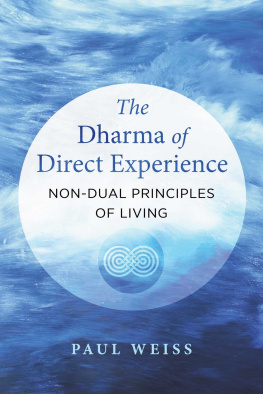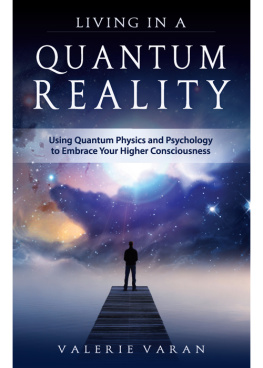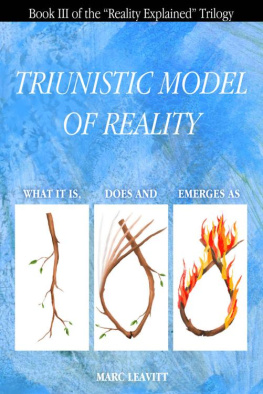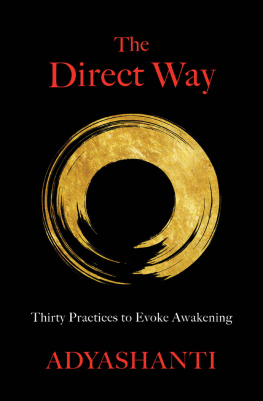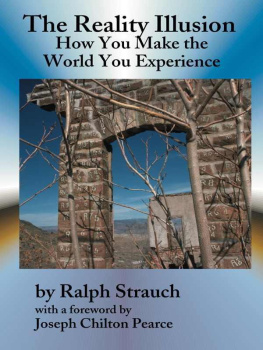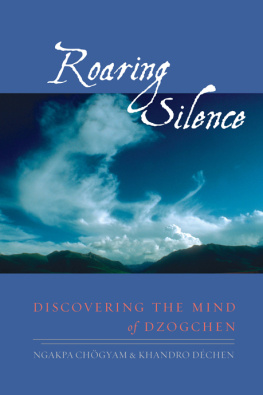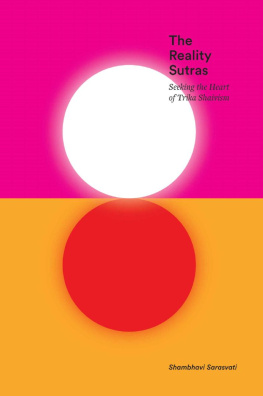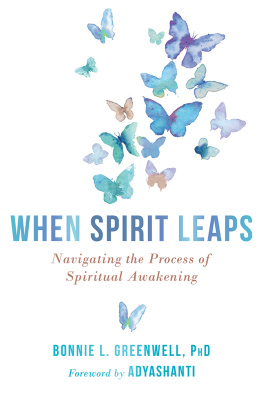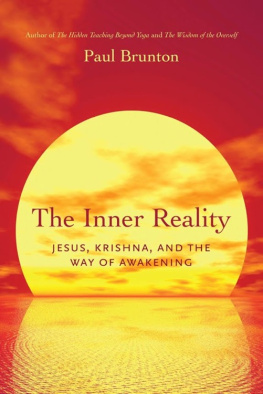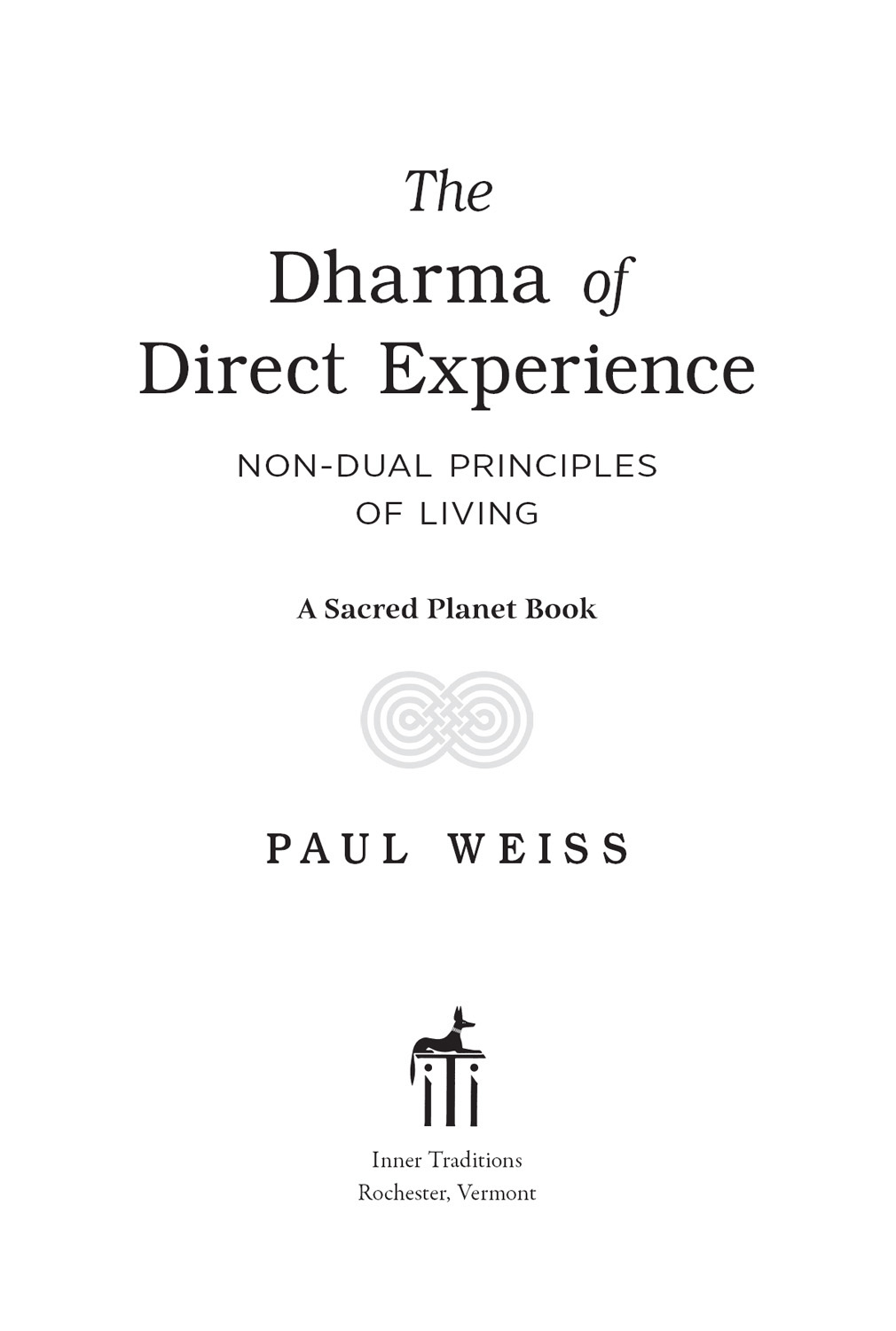
Contents
Note to the reader
This book discusses various aspects of non-duality and the wisdom traditions. While reading, you may find it useful to refer to the list of terms relevant to this book and their associated meanings, located in the final chapter titled Useful Terms.

PRELUDE
All Reality Begins with this Moment of Experience
W e sit together in the late day, as the sun is passing. We are at rest, and there is a shared heartbeat between us. A shared recognition of consciousness in our eyes. We have relaxed into what is fundamental to our being: the harmonizing field of the heart, the coherence of the present, the surrender of distraction and self-consciousness. Absent our self-centered mental worlds, awareness is simply a light that allows this moments own transparency to energy and form and emptiness; to the sighing of the sunset fields. And to the undefined reality of You and I awake to each other, which is only the universes latest recognition and celebration of itself.
Yet how often are we locked into our thoughts of past and future, near and far, theory and explanation, fears and plans; thoughts of he said/she said, thoughts of better and worse, thoughts of self, thoughts of previous thoughts? What do they have in common? They are all thoughts. They are all an imaginary film in which we live most of our lives, in which awareness spends its time like a lost child in someone elses movie, beholden to the script.
When awareness returns to itself, rests in its own luminous nature and its home in emptiness, reality is wide open. Now the passing day turns from the early gloaming, the gentle and still sparkling wash of post-sunset pinks and peacocks and gold-lined grays; and the blue hour begins, slowly darkening into purple and black. But there is nothing fixed, nothing solid, here. There is awareness. This wash of color and form, these transformations of the air, are the transparent shades of an infinite moment; the darkening woods are a lover of infinite space and depth. Now there is a screech, now a rustle. The single note of a birdor a wind chimeor a distant car. Or a heartbeat. Or of love recognizing itself once again.
Reality begins with this moment of awareness. Where else will it arise? Will it be the reality of the film or the reality of open sky and deep woods; the reality of the dream images or the reality of empty awareness; the reality that beckons newly and infinitely to us, or the reality that is already prescribed? It begins here, in the moment of shadows, and in the sunrise.
When awareness recognizes and relaxes in its own openness, it illuminates all arising content without grasping or labeling, without pushing it away. When awareness does not recognize its own nature, its own openness, it is instead hypnotized by the arising content. This is like the tug of the cart pulling the horse: awareness identifies with all the random or pre-conditioned contents, thoughts, representations, and projections of the mind that every moment drag us, and structure our experience in fixed ways. In this state, we may believe whatever is on the television, in which even the present moment is seen through the screen of our mental representation.
This latter state is the world as we routinely know itwith our experience prescribed for us. This is called normal. It is our default, or automatic, setting. We may even say it is our sleep setting. However, if we are able to withdraw our attention from the screen, we may reallow a receptive openness to the field of experience right now, neither pre-conceived nor pre-judged. This choice often requires a conscious manual setting. This openness of attention is available to any of us any time, and may be practiced.
This faculty of openness obviously serves us by allowing a more present, spontaneous, and creative response to our everyday experience and to each other. It is also the beginning of what we may call contemplative openness, when the awareness is allowed to remain in a state of relaxed and receptive presence. It is not a static presence, but one which has an active and genuine interest in understandingopening tothe truth of things; an interest which does not enlist the minds cleverness or projections. Rather, it relies on a deeper organ of listening, or receptive awareness, that is more coherent than the perseverations of the mind. Then, this moment emerges as an infinite sea of possibility and revelation that opens itself to us in accordance with our availability; that is, in accordance with our own willingness and capacity to open to it. It will disrobe for us layer by layer to reveal its naked body and its heartinsofar as we gradually disrobe from our layers of mental preoccupation and conditioning.
Here we have the invitation and the opportunity to drop through many layers of externality, separation, projection, and identification with our personally and culturally inherited ways of defining reality. It is simply an intent and sincere listening into the heart of this moment. This is both the cultivated field of our openness, and, we might say, the growing static electricity, in which the lightning of revelation, of sudden illumination, may strike. We may say that our growing coherence gives way to our transparency. That is how it works. And then we know something directly about the intimate nature of realityhowever paradoxical to consensus realitywith an authority and confidence that all the other mental faculties are not capable of.
It is naturally difficult to make the small, sustained choices of attention that enable us, over time, to rest in that open field. Our attention has been trainedlike a kidnap victimto identify with its mental captors, and wont walk out the front door. Orto reverse the imageimagine you are standing in the doorway of a treasure house, which is the spacious home of your true being. Outside, bullhorns are blaring, and a political parade is passing by, complete with clowns, music, special-interest floats, and dancing animals. Finally comes the politician on his loudspeaker, promising you anything and asking for your vote. You cant help but be engaged by all the activity. Your attention remains outside.
The parade represents all the contents of your mind. The politician signifies all the ways your mind has learned to describe, organize, and judge reality. It will promise you anythingpleasure, freedom, approvaland assure you it is your only hope, if you will just stick with it. It also gives you endless content for your attention. That parade of the mind is constant, and our loyalty to its activity and projections is habitual. Consequently, even the present moment of experience is largely seen through its blare and glare.
Alternately, starting at this same moment of experiencethe same doorwayyour attention leaves the parade and turns back into the open space of your home. This is sometimes referred to as looking withinbut the within is not a closed-off place. It is not inside you, or inside your mind. Rather, it simply means looking withinor opening tothe nature of this moment, and the spacious nature of your own awareness, before the mind gets its hands on it.
The depth and fullness of the world lie in what we do not routinely see or feel, and have forgotten. But this knowing is not only about the physical form and texture of thingsit is also a deep seeing into, and through, the world of appearances itself, to palpate the living flesh beneath the skin of our projections and concepts. It is like palpating the warm flesh of non-duality through the cold skin of separateness. It is a relaxation in awareness. It is the receptive attention that allows the more holistic truth of this moment to reveal itself to our deeper organ of knowing. We may truly call it our home, because we can only be truly at home in this moment, and in this space, of being. And we may call it a treasure house because the treasures of being are revealed here in this space of receptive knowing.
Next page
